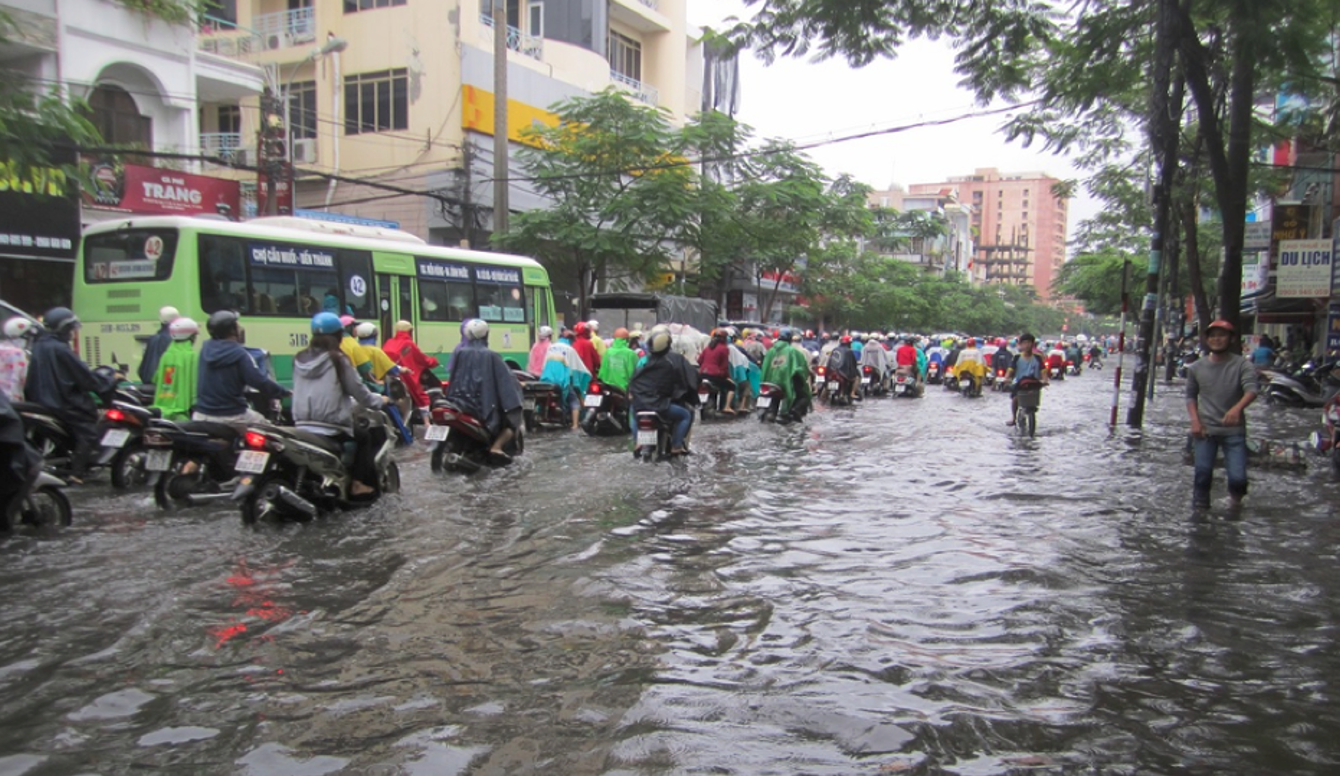Solutions to ensure smooth bus operations during severe flooding events in Ho Chi Minh City

TUMI Labs is a project that is designing innovative solutions to problems faced by Ho Chi Minh City’s (HCMC) by working through VGU (Vietnam German University) to study the situation and develop a response to an escalating challenge – the impact of extreme weather on its transportation system.
Situated amidst the Mekong Delta and the Saigon River, HCMC experiences recurring flooding, which heavily disrupts its transportation network. The scenario is daunting: overflowing canals during heavy rainfall and densely populated roadways lead to traffic congestion, affecting the daily lives of millions of residents.
Stepping up to address this, HCMC Department of Transport (DoT) officials, TUMI Labs and the Vietnam-German University (VGU) are leveraging big data to strategize and mitigate these transport issues.
Harnessing Big Data & Machine Learning for Contingency Planning
TUMI Labs aims to create a predictive model to better anticipate congestion arising from flooding. The process involves utilizing big data to analyze traffic patterns, weather data, historic extreme weather events, identify vulnerabilities in road infrastructure, and discern changes in road user behavior. The eventual output is a digital process and code that creates a tool to guides city authorities during planning stages, ensuring continued bus operations irrespective of the weather.
Real-time Adaptation of Bus Routes
The initiative’s objective extends beyond creating a predictive model; it involves providing critical insights to officials who can implement strategies to adapt to climate change and ensure uninterrupted operations. The focus is on relieving congestion for the nearly 2,084 private and public buses plying on 127 bus routes in the city.
By understanding the patterns of the past, we can look to the present to predict the future. VGU used their close relationship with the DoT to gain access to the necessary data required for making such predictive assessments. We are currently developing the real-time interfaces (API) for tracking the bus GPS devices, weather data, traffic conditions and the reports of critical incidents within the road network.
Automating Congestion Prediction and Rerouting
Current bottlenecks include inadequate traffic prediction tools leading to long waits at bus stops and inefficient route adaptations. VGU’s solution involves automated congestion prediction and rerouting processes based on big data and machine learning algorithms. The goal is to reduce delays and increase operational efficiency.
Expanding the Bus Network
Currently, HCMC’s public transport system only covers around 7% of the modal share. The city aims to encourage residents to switch from private vehicles to public transport, walking, or cycling. However, the creation of dedicated bus lanes is constrained by the city’s topography and narrow streets. TUMI Labs’ involvement aims to find a solution to these challenges.
In conclusion, the efforts in HCMC demonstrate the potential of big data and predictive modeling in combating climate-induced challenges. These strategies have far-reaching implications, extending beyond HCMC to potentially impact other cities in Vietnam and globally. It showcases how an objective, data-driven approach can effectively mitigate issues, providing a blueprint for other cities facing similar challenges. The concept, implementation processes, and initial digital solutions developed by TUMI Lab are highly replicable and transferable to other cities. To further expand the impact, TUMI Labs and VGU will continue to enhance the tools and share their knowledge with other cities in Vietnam and worldwide. Collaboration from additional organizations and individuals is welcomed to join in these transformative efforts.
Link to further materials
- https://projekttraeger.dlr.de/media/events/GVSD-2023/medien/presentations/Flood-Risk-Adaptation/Vu-Tesfay_TUMI.pdf
- https://www.urbanet.info/climate-proofing-public-transport-vietnam/
Contact Person
Frederic Tesfay
Key buzzwords
Flooding, bus, critical infrastructure, Vietnam, data, digitalization, AI, machine learning, resilience
